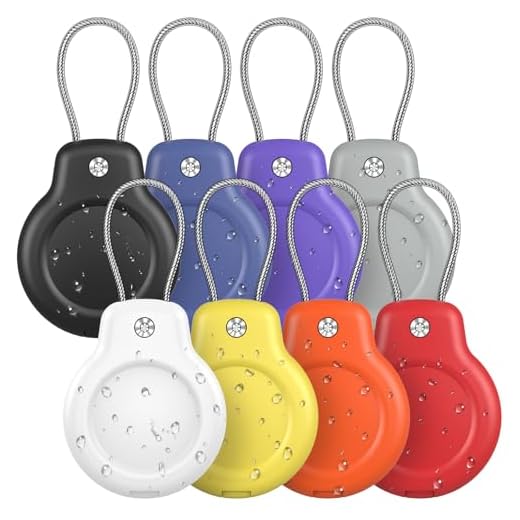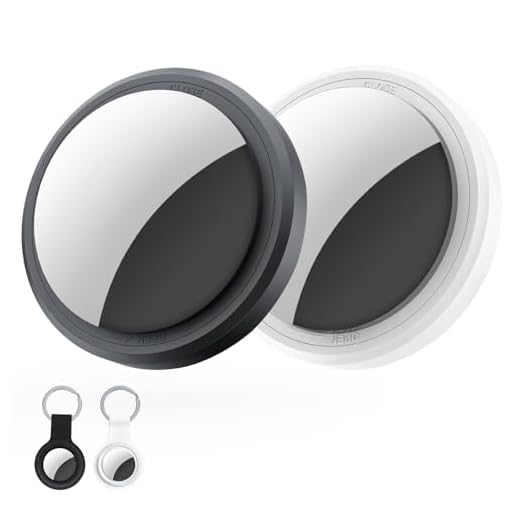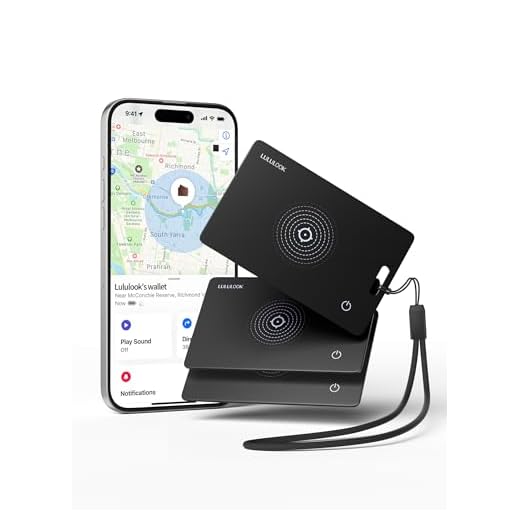



Utilizing tracking devices in your travel bag can enhance peace of mind, especially during air travel. These compact gadgets offer real-time location updates, aiding in the recovery of misplaced belongings while maintaining a discreet profile within your suitcase.
When considering the incorporation of such technology, ensure they comply with airline regulations to avoid potential issues at security checkpoints. Most carriers permit these devices, but double-checking specific policies can prevent unwanted complications. Securely securing the device within an internal pocket can mitigate the risk of damage or interference with other items.
Furthermore, keep in mind battery life; many tracking tools require regular charging to remain operational. Carry a power bank on longer trips to maintain functionality. Awareness of local laws regarding tracking technology is also crucial, as regulations may vary significantly by region.
In summary, strategically adding a tracking device can enhance your travel experience without compromising convenience or adherence to airline protocols.
Is it advisable to include tracking devices in your travel baggage?
Embedding tracking devices into your travel bags can enhance security, yet it is essential to manage their use carefully. Ensure these devices are properly secured within pockets or compartments to prevent damage during transit. Choose models with robust casings to resist potential impact, moisture, and temperature fluctuations commonly experienced in airports and cargo holds.
Battery and Connectivity Considerations
Verify that your device functions optimally and has a strong battery life prior to travel. Regularly check the battery status through companion applications to avoid unpleasant surprises. Be mindful of varying connectivity options in different regions, as network availability can influence the performance of location services.
Privacy and Surveillance Awareness
Utilizing tracking technology may raise concerns regarding privacy and surveillance. Be informed about local regulations protecting privacy in the destinations you are traveling to. Additionally, familiarizing yourself with the terms of service can help mitigate any potential legal issues surrounding tracking without consent.
Understanding AirTag Functionality in Travel
For travelers looking to enhance their baggage management, leveraging AirTag technology can be beneficial. These compact devices integrate seamlessly with Apple’s Find My network, allowing users to track their belongings in real-time. When considering their use, it’s important to understand how they work and their specific functionalities during travel.
Connection and Tracking Ability
The primary feature of these devices is their capability to communicate with nearby Apple devices. When a tagged item comes within the Bluetooth range of another device in the Find My ecosystem, its location is updated on the user’s device. This means you can monitor the position of your belongings via the Find My app, even if they are outside of your own device’s Bluetooth range. It’s recommended to check that your device is compatible and that your settings allow location sharing for optimal tracking.
Privacy and Security Features
Apple has implemented privacy measures to protect users from unwanted tracking. Devices emit alerts if an unknown tracker is detected moving with them. Additionally, if a tagged item is separated from its owner, the device will notify others via sound, ensuring safety. Regular updates to the software may further enhance these functionalities, making it prudent to keep the firmware on both your device and the tags current.
Overall, utilizing these trackers can greatly improve the experience of managing personal items while traveling, providing both peace of mind and reliable tracking capabilities.
Security concerns related to luggage tracking
Travelers should be aware that using tracking devices in their bags can attract unwanted attention. Individuals with malicious intent could potentially search for devices to steal items or luggage, especially when they realize that a bag is equipped with a tracking system.
Data Privacy Risks
Personal information linked to tracking devices raises data privacy concerns. If a tracking device is compromised, it may expose sensitive details about the owner, such as travel itineraries and locations. Enabling device notifications and sharing location data should be handled with caution.
Battery Life and Emergency Situations
Tracking devices rely on battery power. In situations where a battery runs low, tracking may be inconsistent, which could hinder recovery efforts if a bag goes missing. Always check battery life before travel and consider that devices can fail unexpectedly.
For trustworthy travel essentials, consider looking into the best umbrella company for nhs or the best umbrella strollers for long babues. These options combine functionality and reliability during your travels.
AirTag Battery and Luggage Handling Risks
Maintaining battery health is crucial for optimal performance. Ensure to check the battery status regularly, as low power can affect tracking capabilities. Most tracking devices utilize lithium-ion batteries, which have inherent risks if exposed to extreme temperatures. Secure these gadgets in compartments that provide insulation from heat or cold during transit.
Potential Risks from Environmental Factors
During baggage handling, exposure to moisture and fluctuating temperatures can negatively impact electronic devices. Conduct a thorough inspection of the tracking device’s housing to safeguard it against water damage. Additionally, consider placing the tracker in protective padding to minimize impact during rough handling.
Insurance and Liability Considerations
Travel insurance may not cover damages to electronic devices during transport. Review policy details to understand coverage limitations. Keeping detailed records and photos of the equipment can assist in potential claims. Opt for devices with warranty options that provide security against malfunctions or damages to the battery.
Legal Implications of Using Tracking Devices in Public Spaces
Incorporating tracking devices into personal belongings sparks a myriad of legal questions, particularly concerning privacy rights and consent. Individuals should be aware that unauthorized tracking of another person’s property without consent may lead to serious legal repercussions.
Privacy Laws and Consent
Before utilizing tracking technology, it’s crucial to consider local privacy laws. Many jurisdictions have regulations that protect individuals from being monitored without their knowledge. Always ensure that the use of tracking devices on items is limited to one’s own possessions or those with explicit permission.
Surveillance and Harassment Concerns
Using tracking gadgets could be misconstrued as stalking or harassment, especially if placed on items belonging to others. Such actions can lead to civil lawsuits or criminal charges if deemed invasive. It’s prudent to refrain from tracking belongings not owned outright, as this can escalate to unwanted legal troubles.
| Legal Aspect | Implications |
|---|---|
| Privacy Violations | Potential lawsuits or penalties for unauthorized tracking. |
| Stalking Laws | Possible criminal charges if used to track individuals without consent. |
| Informed Consent | Requirement for legal use on items belonging to others. |
Understanding these legal constraints promotes responsible usage of tracking technology, ensuring compliance and protection against potential lawsuits or legal action.
Best practices for using AirTags in baggage
Attach trackers securely to the inside of bags to reduce the risk of detection and potential removal by others. Use adhesive cases designed for such devices to ensure they remain in place during travel.
Employ a stationary location for monitoring, like a smartphone with an updated tracking app, to receive real-time notifications. Regularly check the connection to confirm the device is operational before embarking on trips.
Utilize the feature that allows for notifications when moving away from the vicinity to avoid misplaced items. If a journey involves multiple layovers, manually refresh the tracking connections to ensure updates are captured.
Store in a compartment that does not interfere with the weight limit, as certain authorities may open checked items for inspection. Aim to keep the tracker hidden from plain view to maintain discretion.
Limit sharing tracking information with others to prevent unauthorized access. Enable privacy settings that restrict visibility to only trusted contacts and ensure the tracking device is registered under a secure account.
Check local laws and regulations regarding tracking technologies while traveling to ensure compliance and avoid potential legal issues. Stay informed about the rights associated with tracking devices in different regions.
Alternatives to AirTags for Tracking Luggage
For those seeking options for monitoring their bags, consider the following devices that provide reliable tracking features:
- Tile Pro: This Bluetooth tracker boasts a range of up to 400 feet and allows users to locate belongings through a smartphone app. Its community finding feature enables other Tile users to help locate lost items.
- Samsung Galaxy SmartTag: Compatible with Galaxy devices, this tag offers Bluetooth tracking and utilizes Ultra Wideband technology for precise locating. It is ideal for those already invested in the Samsung ecosystem.
- Chipolo ONE: Known for its loud alarm and long battery life, this tracker connects via Bluetooth and alerts users if they leave their items behind. It also supports community search features.
- Tracki 4G GPS Tracker: This device provides real-time tracking via GPS, making it suitable for international travel. It requires a subscription for cellular service but offers comprehensive coverage.
- Invoxia GPS Tracker: With an extended battery life of up to several months, this tracker offers real-time location updates and geofencing alerts for added security.
When exploring tracking solutions, compare battery longevity, range, and compatibility with devices. For those interested in additional options for home equipment, check out the best all in one saltwater aquarium kit.








